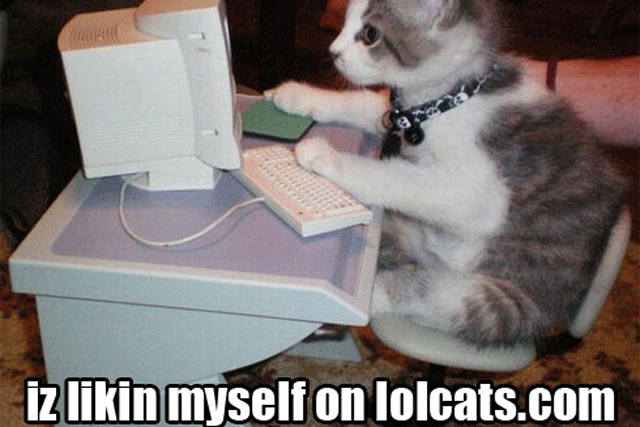
 I’m one of the people who can remember an analogue marketing world. Like much of the good old days, (think conscription, homophobia, public executions) the reality didn’t merit the roseate glow it gets.
I’m one of the people who can remember an analogue marketing world. Like much of the good old days, (think conscription, homophobia, public executions) the reality didn’t merit the roseate glow it gets.
That pre-internet world featured a stifling monopoly on commercial television, shops that were shut much of the time and medieval restrictions on any form of printed data – i.e. you either bought it or read it in a library. We didn’t know it, but that world was oligarchic, exclusive and anti-competitive.
The internet has changed almost everything that we read, see, send, share or work at.
Hard to see the #lolcats potential of the internet
Gazing with the 1996 edition of Russell Davies (then an advertising planner) at the first websites, I wish I could say I was filled with a wild surmise of the possibility. I wasn’t.
The internet has empowered 3bn people to read, see and publish with a freedom that only princes and magnates enjoyed before
Russell, ever the visionary, saw the future. I saw a brochure on a flickering black and white screen. But it was difficult then to imagine the need for, let alone the supply of, unlimited connectivity, infinite media or the global ability to .
The thing that most excites me about the internet era is the democratisation of knowledge. The way it has started to level the playing fields of privilege that have sloped for centuries. The way it has disintermediated the slow and the complacent. The way it has made the world come closer.
And, most, of all the way it has empowered 3bn people to read, see and publish with a freedom that only princes and magnates enjoyed before.
For me it’s not that marketing is different because of the internet. Of course it is – wildly different. But it’s not because marketing is special – it’s that the world itself is so different. And better.



.jpg)
.jpeg)
